#Chizuko Ueno
Text
Because large-scale organising is “almost impossible” in China, women are turning to “all kinds of alternative ways to maintain feminism in their daily lives and even develop and transfer feminism to others,” she says. These may take the form of book clubs or exercise meet-ups. Some of her friends in China organise hikes. “They say that we are feminists, we are hiking together, so when we are hiking we talk about feminism.“ - Lü Pin
To find evidence that China’s feminist movement is gaining momentum – despite strict government censorship and repression – check bookshelves, nightstands and digital libraries. There, you might find a copy of one of Chizuko Ueno’s books. The 74-year-old Japanese feminist and author of Feminism from Scratch and Patriarchy and Capitalism has sold more than a million books in China, according to Beijing Open Book, which tracks sales. Of these, 200,000 were sold in January and February alone.
Ueno, a professor of sociology at the University of Tokyo, was little known outside in China outside academia until she delivered a 2019 matriculation speech at the university in which she railed against its sexist admissions policies, sexual “abuse” by male students against their female peers, and the pressure women felt to downplay their academic achievements.
The speech went viral in Japan, then China.
“Feminist thought does not insist that women should behave like men or the weak should become the powerful,” she said. “Rather, feminism asks that the weak be treated with dignity as they are.”
In the past two years, 11 of her books have been translated into simplified Chinese and four more will be published this year. In December, two of her books were among the top 20 foreign nonfiction bestsellers in China. While activism and protests have been stifled by the government, the rapid rise in Ueno’s popularity shows that women are still looking for ways to learn more about feminist thought, albeit at a private, individual level.
Talk to young Chinese academics, writers and podcasters about what women are reading and Ueno’s name often comes up. “We like-like her,” says Shiye Fu, the host of popular feminist podcast Stochastic Volatility.
“In China we need some sort of feminist role model to lead us and enable us to see how far women can go,” she says. “She taught us that as a woman, you have to fight every day, and to fight is to survive.”
When asked by the Guardian about her popularity in China, Ueno says her message resonates with this generation of Chinese women because, while they have grown up with adequate resources and been taught to believe they will have more opportunities, “patriarchy and sexism put the burden to be feminine on them as a wife and mother”.
Ueno, who found her voice during the student power movements of the 1960s, has long argued that marriage restricts women’s autonomy, something she learned watching her own parents. She described her father as “a complete sexist”. It’s stance that resonates with women in China, who are rebelling against the expectation that they take a husband.
Ueno’s most popular book, with 65,000 reviews on Douban, is simply titled Misogyny. One review reads: “It still takes a little courage to type this. I have always been shy about discussing gender issues in a Chinese environment, because if I am not careful, I will easily attract the label of … ‘feminist cancer’.”
“Now it’s a hard time,” says Lü Pin, a prominent Chinese feminist who now lives in the US. In 2015 she happened to be in New York when Chinese authorities arrested five of her peers – who were detained for 37 days and became known as the “Feminist Five” – and came to Lü’s apartment in Beijing. She narrowly avoided arrest. “Our movement is increasingly being regarded as illegal, even criminal, in China.”
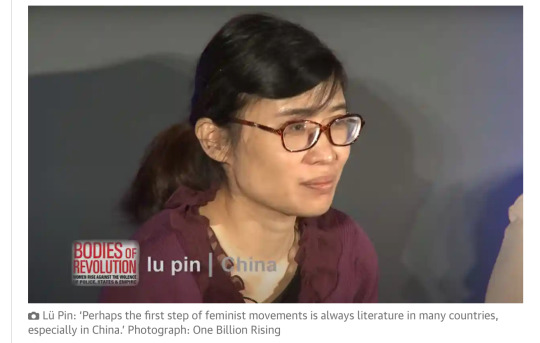
China’s feminist movement has grown enormously in the past few years, especially among young women online, says Lü, where it was stoked by the #MeToo movements around the world and given oxygen on social media. “But that’s just part of the story,” she says. Feminism is also facing much stricter censorship – the word “feminism” is among those censored online, as is China’s #MeToo hashtag, #WoYeShi.
“When we already have so many people joining our community, the government regards that as a threat to its rule,” Lü says. “So the question is: what is the future of the movement?”
Because large-scale organising is “almost impossible” in China, women are turning to “all kinds of alternative ways to maintain feminism in their daily lives and even develop and transfer feminism to others,” she says. These may take the form of book clubs or exercise meet-ups. Some of her friends in China organise hikes. “They say that we are feminists, we are hiking together, so when we are hiking we talk about feminism.
“Nobody can change the micro level.”
‘The first step’
In 2001, when Lü was a journalist starting out on her journey into feminism, she founded a book club with a group of friends. She was struggling to find books on the subject, so she and her friends pooled their resources. “We were feminists, journalists, scholars, so we decided let’s organise a group and read, talk, discuss monthly,” she says. They met in people’s homes, or the park, or their offices. It lasted eight years and the members are still among her best friends.
Before the book club, “I felt lonely when I was pursuing feminism. So I need friends, I need a community. And that was the first community I had.” “I got friendship, I deepened my understanding of feminism,” Lü says. “It’s interesting, perhaps the first step of feminist movements is always literature in many countries, especially in China.”
Lü first read Ueno’s academic work as a young scholar, when few people in China knew her name. Ueno’s books are for people who are starting out on their pursuit of feminism, Lü says, and the author is good at explaining feminist issues in ways that are easy to understand.
Like many Ting Guo discovered Ueno after the Tokyo University speech. Guo, an assistant professor in the department of cultural and religious studies at the Chinese University of Hong Kong, still uses it in lectures.
Ueno’s popularity is part of a larger phenomenon, Guo says. “We cannot really directly describe what we want to say, using the word that we want to use, because of the censorship, because of the larger atmosphere. So people need to try to borrow words, mirror that experience in other social situations, in other political situations, in other contexts, in order to precisely describe their own experience, their own feelings and their own thoughts.”
There are so many people who are new to the feminist movement, says Lü, “and they are all looking for resources, but due to censorship, it’s so hard for Chinese scholars, for Chinese feminists, to publish their work.”
Ueno “is a foreigner, that is one of her advantages, and she also comes from [an] east Asian context”, which means that the patriarchal system she describes is similar to China’s. Lü says the reason books by Chinese feminists aren’t on bestseller lists is because of censorship.
Na Zhong, a novelist who translated Sally Rooney’s novels into simplified Chinese, feels that Chinese feminism is, at least when it comes to literature, gaining momentum. The biggest sign of this, both despite and because of censorship, is “the sheer number of women writers that are being translated into Chinese” – among whom Ueno is the “biggest star”.
“Young women are discovering their voices, and I’m really happy for my generation,” she says. “We’re just getting started.”
By Helen R Sullivan
This is the third story in a three-part series on feminism and literature in China.
#China#Japan#Chizuko Ueno#Books for women#Feminism from Scratch#Patriarchy and Capitalism#Misogyny#Feminist Five#Lü Pin#WoYeShi
673 notes
·
View notes
Text
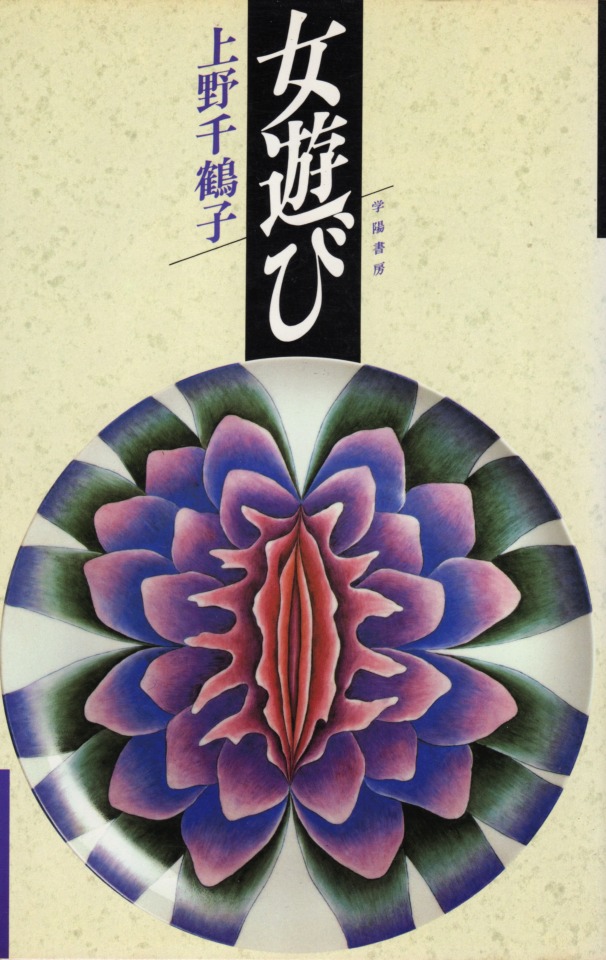
女遊び 上野千鶴子
学陽書房
装画=J・シカゴ『ディナー・パーティ』より
装幀・AD=林佳恵・工房はやし
104 notes
·
View notes
Text


Evelyn Reed: "Women: Caste, Class or Oppressed Sex."
Chizuko Ueno: "Self-determination on sexuality? Commercialization of sex among teenage girls in Japan."
3 notes
·
View notes
Text
CHIZUKO UENO // SOCIOLOGIST
“She is a Japanese sociologist, and Japan’s “best-known feminist”. Her work covers sociological issues including semiotics, capitalism, and feminism in Japan. Ueno is known for the quality, polarizing nature, and accessibility of her work. She is a trenchant critic of post war revisionism and criticises the whitewashing of Japanese history, which she claims attempts to justify its colonialism, wartime atrocities, and racism both before and after WWII. In particular, the compensation of Korean comfort women.”
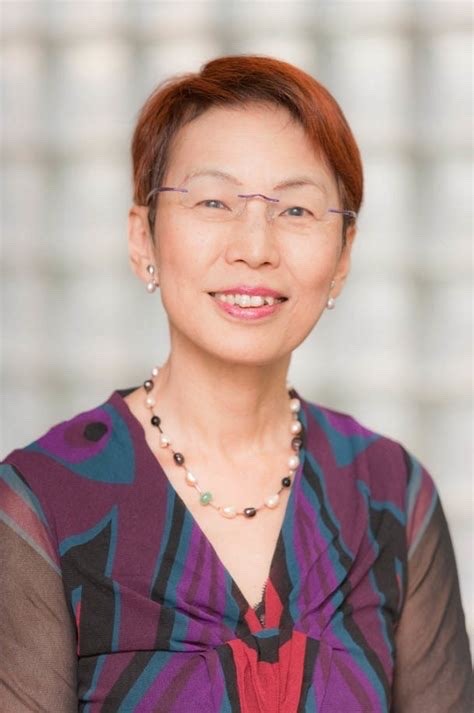
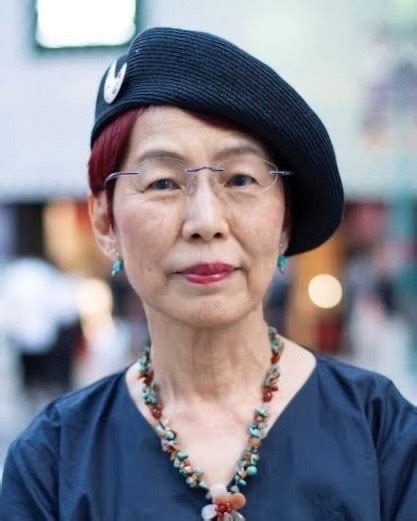
0 notes
Note
This is just curiosity (not meant to be confrontational) but could you expand on what you mean about Chinese imperialism prior to the 19th century being “mild”? I guess I just don’t know how those two concepts can go together as imperialism usually involves some degree of violence through conquest, right?
That is a very valid question so thank you for bringing it up. I just wanted to mention the issue off hand in that post since the focus was on the hanfu hanbok debate, so I'm sorry it wasn't very well articulated. "Mild" was probably not the best word choice in hindsight (one person in the tags suggested “subtle” instead), what I meant was that Chinese imperialism prioritized the establishment of Chinese culture as normative rather than physical conquest or economic exploitation of neighboring countries, leading to a false impression that it wasn't very forceful. Though physical violence and expansion was definitely an integral part of Chinese imperialism, for example the routine conquests of neighboring territories (often those inhabited by nomadic peoples). To me, the insidious nature of Chinese imperialist discourses that framed Chinese culture as universal and reduced the cultures of neighboring, smaller countries to the state of otherness was maybe its true strength. I am thinking in particular (pun intended) of a passage by Japanese feminist Ueno Chizuko:
Throughout Japanese history, "Japaneseness" has been constructed in the shadow of China, and this has given it an irreducibly colonial nature. Premodern aristocrats and intellectuals were necessarily bilingual, since much upper-class written discourse was produced in Chinese, not Japanese. China has always been an ethnocentric imperial state that has considered its own culture to define the borders of the fully human realm. Though sometimes conquered by nomadic tribes and once invaded by Japan, the Chinese have never questioned their own superiority and universality. With this overwhelming Chinese presence as a focal point, Japan has defined itself as particular, distant, and differentiated- put more simply, as inferior to the universal standards of China.
I sort of got the actual effects of Chinese imperialism and the reception of it mixed up, since I had in mind how Western colonial narratives (which dominate discourse currently and overshadow any vestige of Chinese imperialism) frame China as weak and effeminate and Chinese imperialism as ineffective to the point that people struggle to acknowledge historical Chinese imperialism as capable of doing actual harm. A common reaction to modern Chinese claims to the imperial legacy I see is to laugh it off as comical rather than treat it with serious concern. I guess within the Orientalist framework, China (or any “oriental despot”) was simultaneously strong and weak, always wanting to oppress but failing to do it successfully. Chinese imperialism appears mild to us now because Western imperialism said it was. This ties into the thing about how Chinese imperialism collapsed not because of anti-imperialism but another kind of imperialism, so many effects of it on neighboring countries and China itself remain unresolved tensions. Though again, I’m not professionally trained in this area of history so these are just my personal two cents, please don’t take my word for it.
79 notes
·
View notes
Text
I've deleted tiktok off my phone and now mainly use Instagram reels. I get a bunch of content related to Japan (makes sense I'm moving there) but omfg the comments are like the trenches. Some are purely racist to Japanese citizens and others are such Japan dick riders that it's insane.
Anyway recently got a post about a white guy complaining that TOKYO has gotten too "foreign" and that he doesn't want Japan to "lose" their culture. I've got a lot of thoughts on this but nowhere to put them so here they are:
I'm literally losing my mind at how many people think Japan is this orientalist non-westernized country when Japan has westernized itself since the 1890s. Losing my mind at foreigners in Japan complaining that there are more foreigners in Japan and acting like they've been in Japan since before it when they moved there in like 2010.
Saw someone comparing Japan to Hawai'i in how it's losing its culture (truly mindboggling considering what Japan has done to Okinawa) and another guy who's name was literally Noah saying "Americans should keep their bs out of japan no one wants your stupid westernization" like dude ur name is Noah.
Also, no part of America has "westernized" Japan since the early 20th century, and Japan's "westernization" is entirely Japan's own doing for wanting to be in proximity to whiteness. No other culture country or people gets to decide where Japan's culture gets to go, that is solely up to the Japanese people (mind you not the government but the PEOPLE)
Most people obsessed with Japanese culture have never read an actual book on Japan that goes beyond "Japan has shrines that worship the kami or spirits of the world" and "being polite is important as a tourist in Japan". If they did, then they'd know that during the pre-war era and throughout the wartime era, the Japanese government purposefully put out cultural propaganda in order to boost nationalism. They wanted Japan to seem entirely unique and therefore more special than all other Asian countries. This is not to say Japan does not have beautiful cultural traditions that extend centuries, but largely those have been transformed and marketed to Japanese and foreign tourists alike.
Shrines and shrine groups donate and mass support alt-right-wing groups in Japan. The over-politeness culture is part of the awful workplace conditions and suicide rates. Actual Japanese people have spoken to these facts but that does not mean they do not like their home culture. Globalization/modernization will not westernize Japan. Women's rights, LGBT rights, labor rights, and immigrants' rights, will not westernize Japan. They will save Japan.
These Japan-obsessed right-wingers will ignore the hundreds of years of protests and civil rights groups to create an orientalist idea of Japan. None and I mean NONE of those people care about Japan, Japanese culture, or Japanese people, they only care about living out their orientalist fantasies while actual Japanese people living their daily lives are simply background props.
We need to stop pretending Japanese people are not their own people with history, culture, and movements.
Here are just SOME links on Japanese politics not known by most people (please message me if you're interested in these topics or would like more resources):
Nippon Kaigi- Alt Right Religious Group
Japanese Work Culture
Ainu - Indigenous Group of the Lands in the Okhotsk Sea
Ryukuans (Okinawans) - Indigenous Group of the Ryukyu Islands
Scream from the Shadows- A Book on the 60s Feminist Movement in Japan
Chizuko Ueno "Forty Years of Japanese Feminism" - Prominent Japanese Feminist
Burakumin - Lowest "Caste" Group in Japan
Zainichi Koreans - Resident Koreans Who's Families Entered Japan During and After the War
LGBT Rights - LBGT+ Rights Group in Japan
Organizing the Spontaneous - 60s ANPO Movement
Sadly I cannot find the twitter page that often posts modern-day Japanese news that normally is not posted by other news organizations. But if any of you remember it please send me the page so I can add it as I believe it is an important resource. Or just reblog with it!
Look, whether you like or dislike Japan, remember it's a country with people just like anywhere else. Do not dismiss the work activists have done in Japan. Do not say Japan "needs this political movement", instead talk about how Japanese progressive groups need international support and recognition (mind you don't say this about any country, especially largely nonwhite countries!!! you are completely ignoring and rejecting the work millions have put into social change!!! instead talk about those people!!! talk about those movements!!! don't let their efforts be forgotten!!! don't let any government tell you these movements are new!!! THEY AREN'T!!!!). One of the biggest ways we can create change and push away alt-right groups and people from any place is by ruining their image of those places.
Do NOT let the alt-right in Japan convince you Japan is purely homogenous and that Japan is the best country in the world. Do not let the Japanese government erase the Ainu, the Ryukyuan, Immigrants, Zainichi Koreans, LGBTQ+ citizens, women's rights, the Burakumin, the poor, and the communists/progressives of Japan. Do not let ANY country erase that history!
DO NOT LET JAPAN PLAY THE VICTIM TO "WESTERIZATION"
#Japan#Japanese politics#weeb culture#white supremacy#progressive politics#this post got way out of hand and there's still so much to add that i feel bad for leaving things out#anti blackness is something id also like to talk about but i also know there's countless black people sharing their own stories#please feel free to message me if you're interested in further research and information#especially on things like anpo the ainu ryukyuans and burakumin#if anyone is interested i have a massive paper on burakumin political action and history post war i wrote#please dm for more resources!!
20 notes
·
View notes
Text
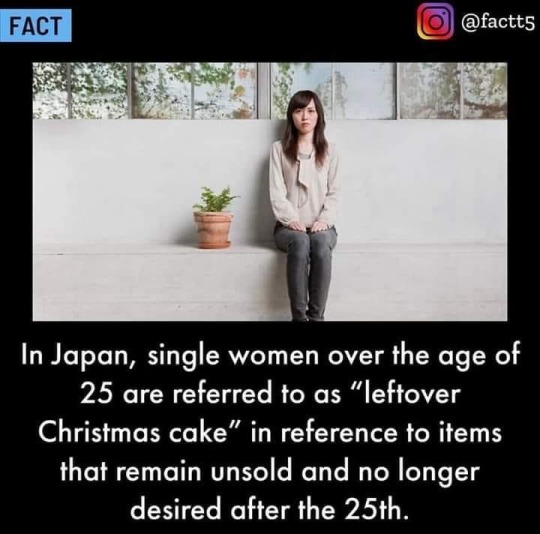
honestly japan is so misogynistic it's not even funny. the men are repressed and perverted, and girls are at risk of being groped in public because of this.
In terms of gender equality: Japan ranks 116th out of 156 countries with a gap of 34.4%. Countries ranked above Japan include China, a country that still has a female infanticide issue, the UAE, a country where polygamy is legal, and the United States, the country with the highest maternal mortality rate of all "developed nations".
anime and manga are also a problem. most of these feature few- if any- female characters. even the most well written characters are featured far less than their male counterparts. When they are featured, you can bet they'll be wearing something revealing and impractical. of course there are exceptions to this rule, but not many. popular anime almost always contains excessive fanservice (for het male fans), in which the breasts and butt of a (typically) underage female is shown up close. one of these shots is usually the first thing we see when a female is introduced. not her face.
it's also worth noting shonen jump, a very popular magazine for the release of new manga chapters, has a policy of only having male editors. this is because female editors won't understand what "speaks to the heart of boys", but of course these male editors claim to know what female audiences want. that's why they keep overtly perverted characters and disgusting fanservice in, despite the discomfort these things cause to many readers.
These are just a few of the sexist issues in Japan. I intend to do further research, and would like to read the works of Chizuko Ueno if I can find them translated.
70 notes
·
View notes
Note
I closely align with your feminist philosophy. What are some books you'd recommend reading?
-gender trouble by judith butler and their essay called performative acts and gender constitution.
-the social basis of the women question by alexandra kollontai
-women race and class by angela davis
anything and everything written by claudia jones and chizuko ueno too but i don’t remember any of the specific names right now i’d have to look through my stuff and i’m not home.
12 notes
·
View notes
Text
無論是誰,最後都是一個人!(No matter who you are, they are all alone living the end of life!) by writer 李偉文:獨自吃飯、看電影,是生命中最棒的時光 - 幸福熟齡
「結婚也好,不結婚也好,無論是誰,最後都是一個人。」
Whether you are married or not, no matter who you are, you are still alone in the end.
─上野千鶴子 うえの ちづこ
《一個人的老後》/ Ueno Chizuko (b. 1948) 日本社會學者
and
獨居當然不是老人的專利,放眼全世界,各年齡層一個人住的比例都迅速增加 …
Of course, living alone is not just for the elderly. Looking around the world, the proportion of people living alone among all age groups is increasing rapidly…
「年輕人想要一個人生活,中年人愛上一個人生活,老年人無奈必須一個人生活。」
Young people want to live alone, middle-aged people fall in love with living alone, and old people have no choice but to live alone.
─ 大前研一 おおまえ · けんいち Ōmae Kenichi (b. 1943) 日本經濟學家
👍 well said frankly ! 😉 Thanks 🍷
#無論是誰,最後都是一個人!#李偉文#no matter who you are you are still alone in the end#so do train how to live with yourself better alone in anytime#has partner good if not you still doing fine alone
3 notes
·
View notes
Note
hi I was looking up chinese feminism on tumblr and found your post from july about you wanting a specific book on chinese feminism through the ages, do you mind sharing the name of that book? i'm desperate for chinese feminist perspectives that haven't been filtered through a western lens but didn't know where to start. yours is the first post about an actual book ive seen so far
Sure.
I searched and I'm pretty sure it was either Feminisms with Chinese Characteristics, edited Ping Zhu and Hui Faye Xiao, or Women, Gender, and Sexuality in China by Ping Yao (can't find the correct link). I have not read either yet, due to not being able to find a reasonably priced or free version or a copy at the library.
I also really recommend reading Once Iron Girls ( i can send my copy) which is a collection of essays
also on my wishlist:
The Many Dimensions of Chinese Feminism by Ya-Chen Chen
Weibo Feminism: Expression, Activism, and Social Media in China by Aviva Xue and Kate Rose
Gender Dynamics, Feminist Activism and Social Transformation in China by Guoguang Wu, Yuan Feng, and Helen Lansdowne
I've heard mixed things about Fan Hong's Footbinding, Feminism and Freedom: The Liberation of Women's Bodies in Modern China, but that might be of interest as well.
Over the past -- 2 years? year? -- the translated works of Japanese feminist Chizuko Ueno have been incredibly popular in China, so I think reading her works might be good to understand what a lot of Chinese feminists are reading & discussing right now.
I hope this was helpful!
#I have a mega folder as well which i can add if interested#yk i think it was the women gender & sexuality bc i remember i wrote down the names of the translated works
1 note
·
View note
Note
Hello! Do you have any books recommendations?
haha, the books I have read are so miscellaneous that I'm not sure how to recommend, if talking about those I like, then..
Legend of the Galactic Heroes? Flowers for Algernon? Frankenstein?The Feynman's Lectures on Physics? On Liberty by John Mill?Einstein: His Life and Universe? 女ぎらい by Chizuko Ueno? The Second Sex by Beauvoir? The Strangest Man: The Hidden Life of Paul Dirac, Mystic of the Atom? Benjamin Franklin: An American Life by Walter Isaacson? And I love to read the letters and articles of Albert Einstein
4 notes
·
View notes
Text
2024/04/21 English
BGM: Depeche Mode - Master and Servant
This morning, I attended an online meeting about autism with my friends. According to my memory, we started this serial monthly meeting about 9 years ago. After that, we enjoyed various events such as cooking, hiking, and also showing our achievements and interests. Today I talked about R.D.Laing's book "Do You Love Me?" with my memory. The other members talked about their work.
This afternoon, after having lunch, I read Chizuko Ueno's book "Hating Women [上野千鶴子『女ぎらい』]". Even though I will be 49 this year (so my school days must be so far), this book's straight and logical messages toward men (especially young guys) hurt my mind deeply. Ueno tells us in this book that our society has consisted of men only (women are just like objects). In other words, society must have a certain "misogyny" or "homosocial" aspect, which doesn't allow women to enter as members. Of course, men need women as objects of sex or love. But Ueno tells us that scenery is the result of this fact: Always men rule this world in the end without women's opinions.
I accept her opinions in this book as truly honest, diligent ones that can hurt me. But, probably because I am an autistic, strange guy, I had been isolated in that kind of "misogyny" society even though I am a guy who could participate in that "homosocial" group. In a way, I was a stray cat in that masculine society. Of course, that fact doesn't say I am right about this issue, but at least I can say this. That "misogyny" society even has given me a certain mental pressure.
Besides Ueno's that one, I have tried to read a certain amount of feminists' achievements. Although I have learned a lot from them (because they tell me this world's another aspect I have never seen from my sexuality), it's even really difficult for me to have empathy with them. What should I do as a goat or a coward guy in this society (even though I could have built this world as such a stubborn, ignorant guy)?
Therefore, at the end of this journal, I want to write this. Yes, this world can have a certain "misogyny" aspect. But, that also can work as a harmful, violent affection toward me - although I can't say I must be a feminist because of that simple conclusion.
0 notes
Text
Chizuko Ueno: The Unlikely Feminist Icon in China's Tightly Controlled Society
In recent years, China’s government has enforced conservative social values, urging women to prioritize child-rearing and implementing strict regulations to reduce foreign influence. Despite this backdrop, one individual has defied expectations and emerged as a notable figure on China’s censored internet: Chizuko Ueno. A 75-year-old Japanese feminist scholar, Ueno gained fame in China after…
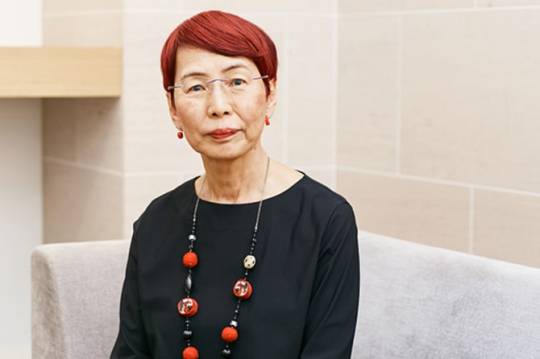
View On WordPress
0 notes